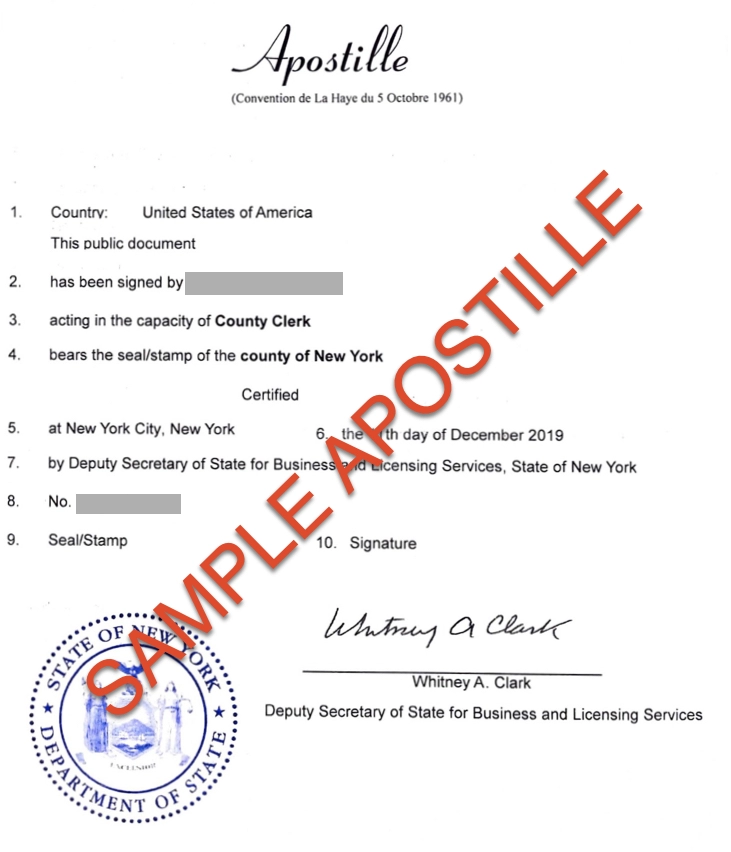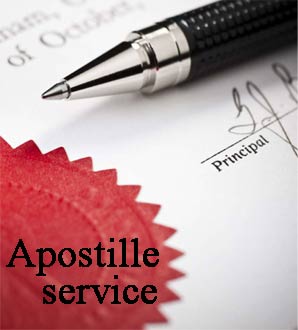Houston Texas Apostille Service: Your Course to International Acknowledgment
Houston Texas Apostille Service: Your Course to International Acknowledgment
Blog Article
Recognizing the Relevance of Apostille Certification and Why It Is Important for Lawful Files
Amongst the various systems available for this objective, apostille qualification stands out as a streamlined and widely identified approach. Understanding the intricacies and effects of apostille qualification on legal documents is necessary for individuals and companies engaging in cross-border activities.
The Interpretation of Apostille Accreditation
Apostille certification is a specialized type of verification that verifies the authenticity of a legal paper for worldwide use. This certification is vital for making certain that records coming from one country are identified as legitimate in another, streamlining the process of cross-border transactions, legal process, or individual matters like marital relationship or adoption. The Hague Apostille Convention of 1961 established the structure for this simplified qualification procedure amongst taking part countries.
To obtain an apostille certification, the marked authority in the paper's country of origin need to validate the file's credibility before affixing the apostille. As soon as attached, the apostille makes sure that the document will be approved as valid in any kind of other country that is component of the Apostille Convention, without the need for further accreditation.
Benefits of Apostille for Legal Papers
The usage of apostille accreditation improves the global acknowledgment process for legal documents, providing considerable advantages in assisting in lawful formalities and cross-border interactions. By affixing an apostille certificate, the paper comes to be readily approved in countries that are part of the Hague Apostille Convention, removing the demand for further verification.
Furthermore, apostille certification enhances the total effectiveness of lawful procedures by streamlining the process of verifying the legitimacy of a record. Generally, the advantages of apostille certification for legal papers are crucial in promoting smoother international engagements and making certain conformity with legal needs across boundaries.
Apostille Vs. Legalisation: Trick Distinctions
When identifying between the processes of apostille certification and legalisation for lawful documents, it is important to understand the crucial distinctions in their respective authentication approaches. An apostille is a simplified form of legalization that is approved amongst countries that become part of the Hague Apostille Convention. The apostille procedure verifies the credibility of the file and the signature of the releasing authority. It does not call for additional embassy or consulate legalisation, making it an extra simple and economical technique for validating documents internationally.
On the other hand, legalization is an extra traditional approach that includes multiple steps of verification. It needs confirmation by various authorities, including federal government divisions and foreign consular offices or consulates in both the releasing and getting nations. This procedure can be extra expensive and time-consuming contrasted to getting an apostille. The selection in between apostille qualification and legalization relies on the particular needs of the country where the paper will certainly be made use of. Comprehending these differences is crucial for guaranteeing the correct verification of legal documents for worldwide usage.
Nations Accepting Apostille Accreditation

While the Hague Apostille Convention has actually considerably streamlined the procedure of cross-border file verification, there are still countries that are not celebration to the convention - Houston TX Apostille. Therefore, files destined for these nations might call for conventional legalization procedures with consulates or embassies. It is vital for services and people managing international purchases to validate the specific requirements of the location nation to make certain conformity with their lawful requirements
Actions to Acquire Apostille for Records
To acquire an apostille for your documents, you have to begin by determining the proper issuing authority in your country. Once you have identified the proper authority, published here the next action is to make sure that your record meets all the requirements for apostille qualification.
After validating that your paper meets the standards, you will need to fill up out an apostille application type given by the providing authority. This form will need information regarding the file being confirmed and the country where it will certainly be used. In addition to the finished application, you will likely need to submit Full Article the initial document, a copy of your recognition, and any suitable costs.

Conclusion
To conclude, apostille certification plays an important role in ensuring the credibility and validity of lawful records for global use (Houston TX Apostille). Understanding the significance of apostille certification is vital for organizations and individuals navigating the complexities of cross-border deals and legal matters. By obtaining apostille qualification, celebrations can simplify the process of record verification and authentication, inevitably conserving time and resources in the worldwide sector
To obtain an apostille accreditation, the marked authority in the document's nation of beginning must confirm the record's authenticity before affixing the apostille. Once attached, the apostille makes sure that the document will be accepted as legitimate in any kind of other country that is part of the Apostille Convention, without the requirement for further certification.
By connecting an apostille certification, the document becomes easily approved in nations that are component of the Hague Apostille Convention, removing the need for further this post authentication.Differentiating in between apostille qualification and legalisation discloses the differing approval of these authentication methods across different countries, with some nations specifically acknowledging and adhering to the apostille process. The apostille accreditation is commonly accepted among countries that are part of the Hague Apostille Convention, which currently has 118 participant states.
Report this page